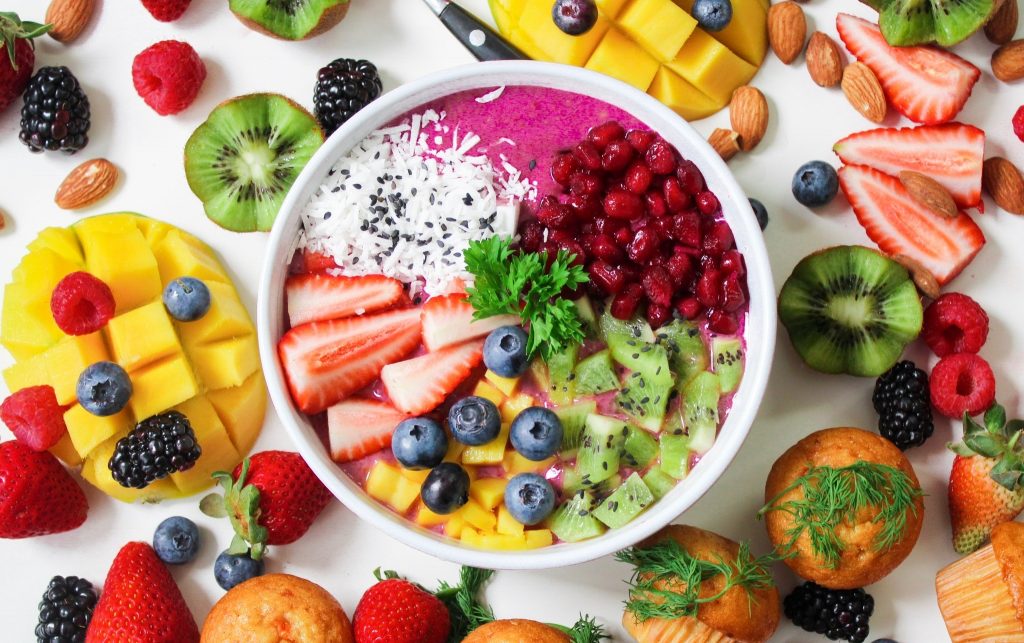It’s that time of year again. Making promises to ourselves to eat healthier, start working out and lose a few pounds this year. It’s never easy, especially when it can be hard to figure out which advice is worth following.
That’s why we here at Athens Nutrition wanted to give you a list of our most important tips to put your nutrition goals on the right track. If you need help starting out, try signing up for our six-week bootcamp, where we’ll email you a new nutrition workout to try each and every week. Or just get in touch! We’d love to help you accomplish your New Years resolutions.
And now, our top seven tips for New Years nutrition!
Set SMART Goals
Lose the lofty but non-specific goals like “I want to lose weight this year” and drop the unrealistic ideas of losing lots of weight fast, or never eating a carb again. Instead, use goals that are SMART: Specific, Measurable, Achievable, Realistic and Timely. For example: I will add 1 cup of vegetables (specific, measurable) to my dinner plate 4 nights a week (timely, achievable and realistic). An even easier way to think about it: I’m going to [DO SOMETHING] at [SPECIFIC TIME]. “I’m going to eat a fruit or vegetable for one of my snacks at least 5 days per week.” “I’m going to fill half my cart with produce when I go to the supermarket each week.” “I’m going to check the menu in advance when I go out to eat.” These are much better than “I’m going to lose 5 pounds” because they’re specific actions you can take on your path to healthier eating.
Track Your Food and Beverage Intake
One of the easiest ways to lose weight all times of year is to track how much you’re eating and drinking. Not only does this help you track how you’re doing, but just the act of tracking will make weight loss easier. Studies show that tracking your intake help you pay attention to your eating habits, which leads to weight loss. You can try tracking apps like MyNetDiary, Nutritionix or go old school and use a handwritten journal.
Create a Balanced Plate
Forget the food guide pyramid (sorry everyone!) Instead, this is the most important nutrition tool you need to look at: your plate. At each meal, you should try to fill half of it with vegetables, a quarter with a high fiber whole grain and the final quarter with a lean protein. What’s a high fiber whole grain? Pretty much anything that’s a grain and is brown (think brown rice, barley, quinoa, whole wheat pasta etc). What’s a lean protein? Go for fish, seafood, chicken, turkey, or any vegetable protein like edamame, tofu, beans, nuts or nut butters.
Need help sticking to your goals? Sign up for our six-week nutrition bootcamp, delivered directly to your inbox
Pay Attention to Your Hunger
This is something many of us don’t even think about. We’re so set in our habits: we have breakfast before work, then we order lunch around noon, take a break for an afternoon snack, make dinner when we get home, and sneak in one late night snack before we go to bed. But are we ever eating because we’re actually hungry? Or just because it’s time to eat. If you find that you’re regularly getting to mealtime or snack-time and not actually hungry, try adjusting your intake or wait until you actually feel hungry. A meal is much more enjoyable when you’re truly hungry. And if you’re just flat-out not hungry–find something else to do! Just spend a little time listening to what your body is trying to tell you.
Cut Back on Snacks
This one might seem obvious, but snacks often add more calories than we realize, both because we forget to factor them in to how much we’re eating and because what’s quick and convenient tends not to be the healthiest options. If you’re eating three balanced meals a day, you’ll usually be satisfied enough so snacks aren’t necessary.
Stop Eating Late at Night
That’s right, no late night dinners or midnight snacks! Several nutrition studies suggest that consuming a higher proportion of calories later in the day, as opposed to earlier in the day, is associated weight gain. If you really need something to eat later in the evening, keep portion small and choose healthier foods like fruit, veggies or small bowl of whole grain cereal with milk.
Drink More Water
Yes, it’s true: drinking more water is an overlooked gem of weight loss and living a healthy lifestyle. We often don’t notice when we’re dehydrated, which impacts how we feel both physically and mentally. First thing: start the day off with one or two glasses of water, before breakfast. Your body loses water overnight while you sleep, so we usually start off the day a bit dehydrated. Try drinking a glass of water before each meal and snack, and maybe swap that late night snack for a nice herbal tea. Staying hydrated will help curb hunger and calorie-free liquids before and during a meal, can help you feel fuller.
Any other ways you’re trying keep your health goals on track this year? Let us know in the comments! And as always, if you need any help jump-starting your journey to healthy eating, get in touch with the Athens Nutrition team. And if you’re looking to learn more, try our six-week nutrition bootcamp, sent directly to your inbox:
